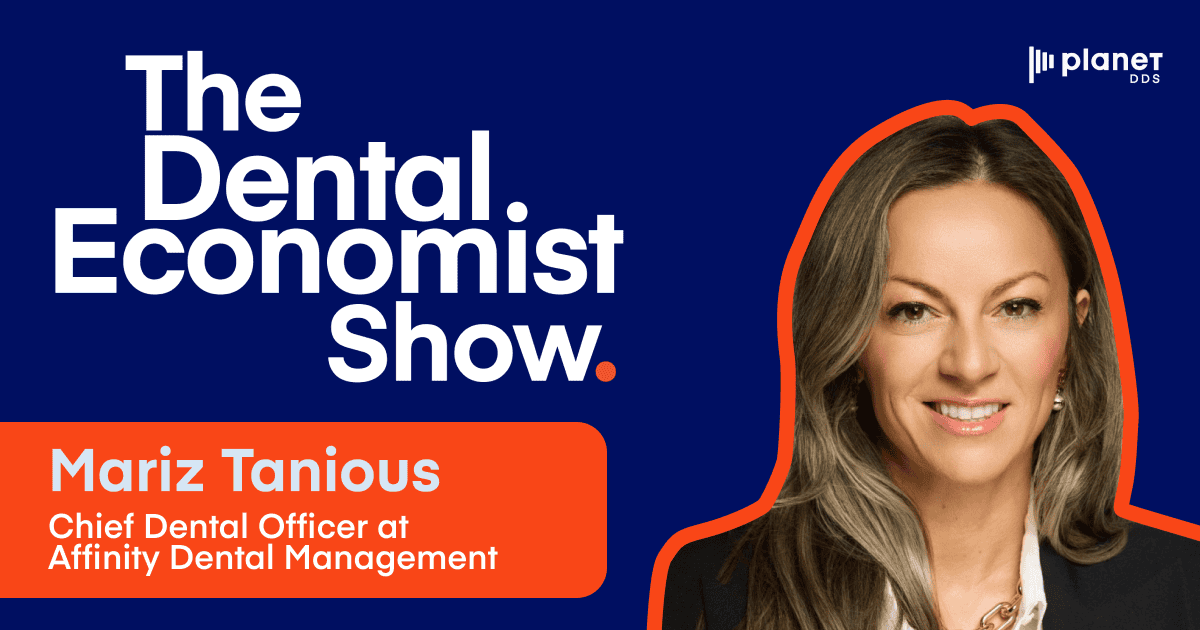Dental Practice Management Solutions for CFOs

Positive cash flow is the lifeblood of a company, and the chief financial officer (CFO) of a dental support organization (DSO) needs to have a practice management system they can trust for revenue cycle management (RCM), data integrity, and security controls.
Choosing the right solution is critical for maintaining a healthy bottom line while scaling operations efficiently. This system should not only streamline revenue collection but also provide robust security controls and predictable costs that align with long-term financial goals. Find out how to select the best practice management software and what capabilities you’ll need to strengthen your financial core.
How to Evaluate RCM Practice Management Software
Revenue cycle management is a key component of a financially successful DSO or dental group. A modern software solution should simplify revenue collection, automate tedious tasks, and enhance accuracy in claims processing. Efficient RCM ensures consistent cash flow and reduces costly administrative errors.
Enhancing RCM with automation
Traditionally, RCM has been labor-intensive and vulnerable to human error at just about every stage. Yet the RCM process is what fuels the financial health of the organization.
An advanced practice management system should minimize user error, automate time-consuming tasks, ensure accurate claim submissions, streamline payment posting, and enable digital payment collection for faster cash flow. The ability to integrate automation and workflow tools into this process can significantly reduce administrative overhead and improve financial outcomes.
Capabilities to look for in a practice management solution include:
- Digital forms and insurance card uploads: Allowing patients to provide necessary documentation before their appointment reduces administrative delays
- Automated insurance eligibility verification: Automated verification that delivers direct-sourced carrier data helps eliminate phone calls and manual portal navigation
- Tiered fee schedules: Ensuring updates are applied efficiently across plans, offices, and providers prevents inconsistencies in pricing
- Electronic claim submission: A system that validates and submits claims in-platform reduces errors and the need to log into third-party websites
- Claims validation: Automated review of claims against payer and practice rules before submission can increase the rate of clean claims
- Claims task manager: A built-in system for managing outstanding claims eliminates reliance on spreadsheets and emails for tracking follow-ups
- Auto-posting of payments: Payments automatically posted to the ledger to minimize manual entry and errors. The solution should also provide team members with easy access to the digital explanation of benefits (EOB) to allow for more efficient follow-ups on clam denials.
- Comprehensive patient ledger: A single-click view of payment allocations across providers and offices to make it easier to explain balances to patients
A well-designed system minimizes friction in the RCM process and enhances overall financial performance for the organization.
Improving Patient Payment Processes
Patients don’t want to receive paper bills or have to find their checkbook and a stamp to submit payment. An effective practice management system should offer flexible and convenient payment methods that not only improve the patient experience but also accelerate revenue collection and boost cash flow.
A modern patient payment system should support:
- Card-on-file capability: Secure storage of patient payment information for convenient future transactions
- Text-to-pay reminders: Automated reminders with a direct payment link to improve collections
- Email payment reminders: Digital reminders to ensure that outstanding balances are addressed in a timely manner
By implementing these features, DSOs and dental groups can reduce outstanding accounts receivable, increase collection rates, and create an enhanced financial experience for patients.
Strengthening Financial Security and Compliance
For CFOs, financial accuracy depends on the integrity of the practice management system’s data. A secure system ensures financial transparency, prevents unauthorized changes, and allows for more accurate reporting. Robust security controls protect both patient data and financial transactions from internal and external threats.
A well-structured financial system should allow for:
- Granular user rights management: Ensuring only authorized personnel can modify financial data, post payments, or adjust fee schedules
- Financial period lockouts: Locking past transactions to prevent discrepancies in financial reporting and facilitates accurate audits
- Secure and auditable payroll tracking: Since doctor payroll is often tied to collections, accurate financial data provides confidence in compensation calculations.
With strong security measures, CFOs can maintain trust in their financial data and reduce risks associated with unauthorized changes.
Leveraging Financial Analytics
CFOs require a clear view of production, collections, patient visits, and other key performance indicators (KPIs) across multiple locations. The ability to analyze financial and operational data in real time enables better decision-making, cost control, and strategic financial planning.
The best practice management system should provide:
- Robust reporting capabilities: The ability to generate reports across locations, providers, and regions
- Access to clean financial statements: Ensuring that stakeholders, including investors and board members, can review reliable financial data
- Integration with analytics tools: Advanced data analysis capabilities
that providedeeper insights into operational efficiency and profitability
These data points are important for not only the executive team but for private equity investors, banks, advisory boards, and other stakeholders want to see the trailing twelve months (TTM) of data for KPIs. With these capabilities, CFOs can gain a clearer financial picture, make informed business decisions, and ensure long-term financial stability.
Investing in Cloud-Based Practice Management Software
One of the biggest financial challenges for DSOs is managing the unpredictable costs of legacy server-based systems. Hidden expenses such as IT maintenance, hardware upgrades, and third-party analytics tools can add up quickly. Shifting to a cloud-based practice management solution provides a more predictable cost structure while offering significant operational advantages.
Benefits of cloud-based systems
By transitioning to a cloud system, CFOs can better forecast IT expenses, reduce infrastructure costs, and increase system reliability without compromising functionality.
DSOs can benefit from:
- Lower IT overhead: Eliminating the need for expensive server maintenance
- Consistent pricing models: Pricing based on locations rather than per user helps control costs as the organization scales
- Built-in integrations: Reducing reliance on third-party tools to save money and simplifies operations
Eliminating Legacy Systems
Traditional server-based systems come with challenges that can impact financial performance, increase operational complexity, and create inefficiencies in multi-location management. Many DSOs find themselves burdened by the constraints of outdated technology. Common legacy system challenges include:
- Inefficient access to data: VPN logins and location-specific data silos make multi-location management difficult.
- Duplicate patient records: Data fragmentation leads to billing errors and inefficiencies.
- Reliance on third-party aggregators: Exporting data for financial reporting adds complexity and cost.
A cloud-based solution ensures centralized data access, correct patient record management, and more efficient financial oversight. By eliminating these roadblocks, DSOs can scale more effectively and enhance financial performance.
How Denticon Can Optimize Financial Operations
For CFOs looking for a scalable practice management solution, Denticon provides the tools necessary to boost financial operations. Top financial software features include:
- Automated RCM workflows to optimize collections and reduce manual tasks
- Integrated digital payment solutions to improve cash flow and patient convenience
- Robust security controls to ensure data integrity and financial transparency
- Advanced analytics and reporting to support data-driven decision-making
- Predictable cloud-based pricing that eliminates unexpected IT costs and improves cost efficiency
Take Control of Your Financial Future
With Denticon, DSOs can centralize their financial processes, enhance operational efficiency, and support growth—all while maintaining a strong financial foundation. With its cloud-based architecture, Denticon delivers a comprehensive suite of financial and operational benefits tailored for DSOs and growing dental groups.
To learn how Denticon can help your dental group improve financial performance, request a demo today.



